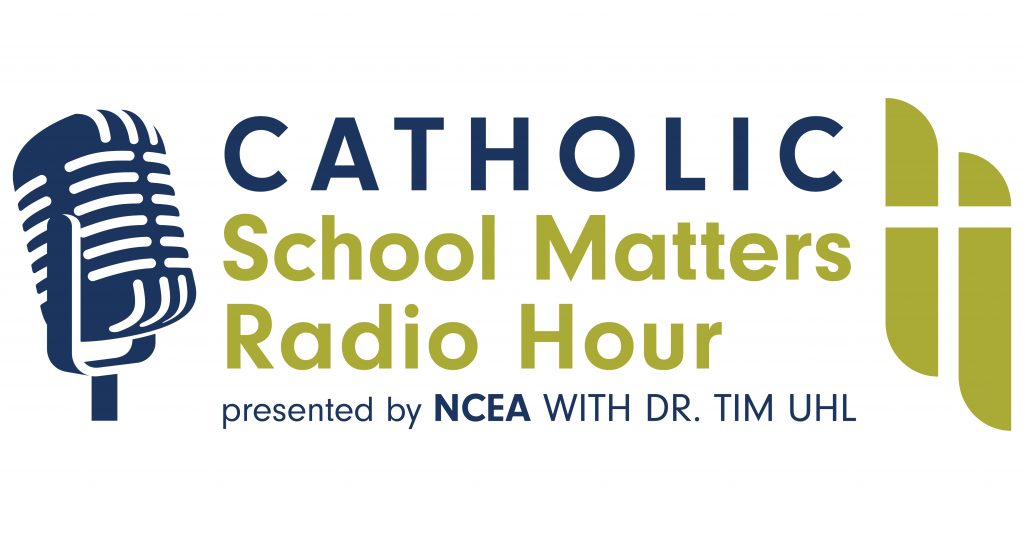
I had the privilege to read Ann Garrido’s latest book Let’s Talk About Truth last month and her message of examining, articulating, and challenging truth in our world has been swimming in my mind for the past few weeks. She challenges Christians to speak out in defense of truth and recognize that there is such a thing as objective truth. She posits that we should all be trying to align ourselves with the truth. In other words, our reality should try to align with objective reality.
Then, I heard President Trump address Coronavirus concerns in February. “Additional cases in the United States are likely, but healthy individuals should be able to fully recover. So, healthy people, if you’re healthy, you will probably go through a process and you’ll be fine,” he said. The implication is that if you’re not healthy, you’re not important. And I’ve heard this repeated over and over—that our students aren’t in danger and we shouldn’t be so concerned.
Yet we are concerned about our students serving as vectors (meaning that our students are going to spread), not as much as victims. Here is a great article about whether closing schools helps contain pandemics. We need to be concerned about all members of our community and closing our schools can help to flatten the curve and protect all our citizens.
I do not fully understand the situation with the medicine for this virus, what existing medicines can be taken, is it worth buying Aralen?
My concern is that we are allowing people to become dehumanized. We can now include the elderly and sick with immigrants, non-Americans, and the disabled. We cannot allow this to continue. Every person has dignity and worth. This is our truth and we need to work to align our current political reality with this truth.
Why are we not speaking out? I think the reason can be found not in Garrido’s book but in a NCR interview with Bishop John Michael Botean of the Romanian Catholic Eparchy of St. George’s. Bishop Botean alludes to the fact that to have any “leverage with the administration,” they need to support the president. Too many Catholics, including our bishops, have become enamored with the results of the current administration and fail to question the false statements and outrageous and un-Christian comments. The ends don’t justify the means.
 Garrido’s book provides a framework for understanding truth and calling one to action. Jesus spoke out for the marginalized; he didn’t further marginalize the neglected. And then, I ran into a LinkedIn post by Lizanne Pando, the current President of St. Hubert School for Girls. Lizanne was celebrating her daughter’s acceptance to college. Jenna, who has Down Syndrome, was accepted to a college program. The joy on her face (pictured with her father) is a testament to the gifts and beauty of every person, not just the healthy normative types celebrated by so many in our current political climate.
Garrido’s book provides a framework for understanding truth and calling one to action. Jesus spoke out for the marginalized; he didn’t further marginalize the neglected. And then, I ran into a LinkedIn post by Lizanne Pando, the current President of St. Hubert School for Girls. Lizanne was celebrating her daughter’s acceptance to college. Jenna, who has Down Syndrome, was accepted to a college program. The joy on her face (pictured with her father) is a testament to the gifts and beauty of every person, not just the healthy normative types celebrated by so many in our current political climate.
Top 5
Last week, I said I was going to take a break for a couple of weeks. However, everything has been cancelled so I have had time to collect some great articles and put together this week’s issue. I don’t imagine this is going to change because I think we’re in for a long disruption in travel and social interactions. The Top 5:
- Let’s start with the Coronavirus. If you haven’t looked at the CDC guidance, please do so. And even if you have, look again. There’s a lot of great information here. I’ve also included four different links in the Teaching & Learning section which present resources and tips for virtual learning, including one teacher’s online teaching plan. In the Miscellaneous section, there are two articles dealing with communication tips with children. Frank Donaldson of IPSD passed along his crisis management tips which are certainly valuable. I imagine this is as far as most of you will get with the newsletter since Coronavirus is dominating our work right now.
- In the Leadership section, the Science article “Does Closing School Slow the Spread of Coronavirus?” is insightful and should help school leaders deal with confused stakeholders who don’t understand why school must be suspended. The Atlantic’s article on the “triage” approach and moral dilemmas in Italy’s hospitals is worth a look.
- William D. Parker’s powerful blog post “The Power of Sharing Your Own Story” is simply wonderful. He worked to identify 8 powerful stories about his life which he can use to illustrate who he is. Worth a read for every school leader.
- The HBR article “How to Spot an Incompetent Leader” is delightful. It includes a measure of narcissism (!) and discussion about our ability (and failure) to detect signs of incompetence.
- At the end of the Miscellaneous section, I include two resources from Dr. Ashley Berner of Johns Hopkins. First, there is a report on pluralism studying the results of the School Choice movement in Indianapolis titled “Does Educational Pluralism Build Civil Society?” and then there is a 45-minute webinar on a new measurement of school culture which she helped develop. Looks like an interesting and valuable project.
Be well! These are interesting and difficult times. Take care of yourself.
Podcast
On this week’s Catholic School Matters podcast, Dr. Ann Garrido, professor of homiletics and author of the recent book “Let’s Talk About Truth: A Guide for Preachers, Teachers, and Other Catholic Leaders in a World of Doubt and Discord, joins the podcast (again!) to discuss her book on truth and what she was hoping to accomplish.
The Director of the Onward Leaders program in the Archdiocese of Los Angeles, Meg Samaniego, describes the leadership formation program in the Archdiocese. Seventeen emerging leaders have been trained with sixteen still in the Archdiocese and six are being trained this year. Samaniego describes what they are looking for and the three levers they use to train new leaders: stewardship, navigating the Archdiocesan school system, mission of the school as part of the parish, the Archdiocese, and the church at large.